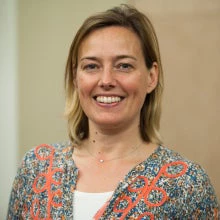 Somalia’s biggest lessons is that real change starts with systems — the invisible wiring that holds a country together. Photo: Mohammed Abihakim / World Bank
Somalia’s biggest lessons is that real change starts with systems — the invisible wiring that holds a country together. Photo: Mohammed Abihakim / World Bank
When we first started working together on Somalia, fragility and crisis were the words most often associated with the country. Yet what we have witnessed over the past few years tells a different, much quieter story—one of resilience, reform, and the steady laying of foundations for a better future.
Through our different vantage points—Kristina based in East Africa, Abdirahman in Washington, D.C.—we found ways to bridge distance, time zones, and challenges. Over time, we created a rhythm: regular monthly meetings, honest conversations, sharing updates, frustrations, and hopes establishing a partnership between our teams and the country, rooted in trust.
Somalia’s transformation isn’t about big headlines. It’s about the power of persistence.
Building systems, strengthening institutions
One of the biggest lessons we learned is that real change starts with systems—the invisible wiring that holds a country together. Strengthening public financial management (PFM), using country systems, and investing in institutional capacity were not the most glamorous parts of the work, but they were essential.
We saw firsthand how reforms in revenue mobilization, financial governance, and currency management weren’t just technical exercises, they were nation-building acts. Every improvement in systems helped deliver better services, enhanced trust, and strengthened the social contract between citizens and the state.
The Central Bank of Somalia stands as a powerful example of this transformation. Beyond the ongoing Somali currency reform, a major achievement in itself, the Central Bank has introduced new institutional structures to strengthen governance, supervision, and financial stability. New products and services are being rolled out to expand access to formal financial systems, including licensing frameworks for banks and mobile money providers. Service delivery has reached higher standards, with more transparent operations, better customer engagement, and stronger regulatory oversight. These shifts are technical milestones and are restoring public confidence and laying the groundwork for a more inclusive financial sector.
Community resilience in action
We were both continually inspired by the determination of Somali communities.
In Baidoa, we watched as women-led water management committees took charge of the Biyoole Water Project, bringing clean water and dignity to thousands of households. In Mogadishu, young tech entrepreneurs showed us how digital innovation could solve stubborn challenges in healthcare and logistics. In Garowe, we saw how new roads, with World Bank support under the Somalia Urban Resilience Project (SURP), connected families, businesses, and opportunities for jobs.
These weren’t isolated stories. They were glimpses of a larger truth: Somalis are not waiting for change — they are making it happen, often under the most difficult circumstances.
Education, women, and youth at the heart of progress
With over 70% of Somalia’s population under the age of 30, investing in education and skills is not just important, it is existential. Through the World Bank-supported Somalia Education for Human Capital Development Project, nearly 100,000 children (half of them girls) have gained access to schooling. The project also focuses on teacher training, school governance, and gender-sensitive learning environments.
Women are playing a pivotal role in this transformation, as educators, community leaders, and role models. During our project visits, we have met young women leading literacy circles in displacement camps, empowering others with knowledge and confidence. We’ve seen female teachers mentoring girls in rural schools and women entrepreneurs inspiring the next generation to dream bigger.
We’ve also met teenage boys in Kismayo learning coding to start their own businesses and girls in Hargeisa mastering science and mathematics, determined to break barriers. Somalia’s youth—with women at the forefront—are determined to build a future vastly different from their past.
Partnerships, stakeholder coordination, and Somali leadership
Somalia’s progress has been made possible by a unique combination of Somali-led reforms, sustained donor engagement, and dynamic coordination among stakeholders. Through interesting engagements and sustained dialogue, we have brought together diverse actors, ranging from government agencies and development partners to private sector leaders and civil society, around a common vision. Many believed Somalia would not reach the HIPC Completion Point given its fragile context, but this has been proven wrong through strong coordination, willingness, and unwavering commitment at every level.
The government’s dedication to the HIPC Initiative and debt relief process has been matched by technical assistance and financing from the World Bank, IMF, and partners. African solidarity has also been instrumental, with Somalia learning from regional peers.
Looking ahead
We don’t want to paint an overly rosy picture. Somalia’s journey is still incredibly challenging. Security risks, climate shocks, humanitarian needs, and an uncertain global financing environment all remain real hurdles. But we also don’t want the quiet progress to go unnoticed. From more sophisticated disaster response systems to stronger fiscal governance, Somalia is demonstrating that fragility is not destiny.
As Somalia takes its seat as a non-permanent member of the UN Security Council for 2025–2026, we hope the world will see beyond the old narratives and recognize a country determined to write a new chapter.
We are honored to have walked part of this journey alongside Somali colleagues, leaders, and communities. And we look forward to seeing how much further they will go.



Join the Conversation